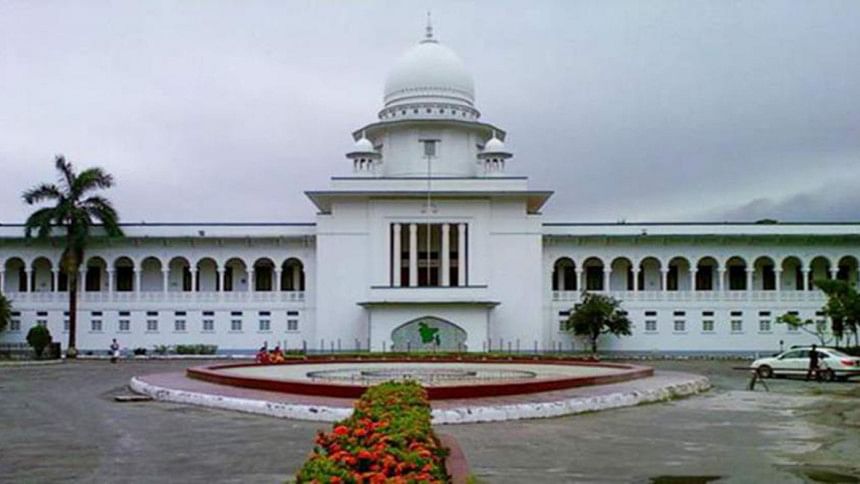The apex court's concern

In a scenario where the police have not been able to adequately transform it and the political class of the country is not desirably sensitized towards the need to revamp the organisation, the concern of the judiciary to keep the police on the democratic path is gratifying. The police, the government and the judiciary bear a mutually informing position to one another in a democracy. A progressive police force provides effective teeth in matters of fair and impartial law enforcement.
In recent times, when the awareness among the people about their democratic rights is growing and the concept of human rights has pervaded almost all spheres of democratic activities, the pattern of police functioning has acquired an added importance. The democratic and human rights of the people invariably interact with the process of criminal justice with which the country's police is directly involved.
In the above context, the November 13 report in this newspaper appears very significant and salutary. The said report records the Supreme Court's observation to the effect that: "In our country we find no concern of the police administration about the abusive powers being exercised by its officers and personnel. The department has failed to maintain required standard of integrity and professionalism". It is also reported that the top brass of police find it hard to tackle crime committed by lower-tier cops and that there is corruption in recruitment and behavioural recklessness is attributed to errant policeman's political links. The apex court further observes: "On a look into the law and order situation, we have reasons to believe that it (law enforcement agencies) has forgotten its core value that it is accountable to the community it serves".
The Supreme Court exhorted the magistrates to not stay silent whenever they find infringement of law against torture and death in custody. However, on ground there appears to be very little application of the law to prohibit both mental and physical torture in any situation, and custodial death.
Admittedly, the police are a legally sanctioned coercive organisation that is supposed to curtail liberty whenever appropriate under the law. The actual problem lies in the use of power, the control process, both departmental and extra-departmental. Excesses do occur, but there are adequate remedial arrangements in the existing law and regulations. The question is, how often and how seriously and properly do the concerned authorities resort to departmental and legal actions when situation so warrants. Is there laxity on the part of the supervisory ranks and complements?
A casual reading of the procedural legislation, which is the Criminal Procedure Code, would reveal that the judiciary including the subordinate tiers has a distinct supervisory role over the functions of police, particularly on matters relating to criminal investigation that impinges on human liberty. The entire process from the time of lodging a criminal case leading to the final disposal is under judicial examination and scrutiny. Therefore, the question arises as to how upright and appropriate the supervisors have been.
Sadly enough, a portion of the judicial functionaries have come under adverse notice for dereliction of duty and demeanour incompatible with their status and image. An investigative report on the corruption in court that appeared in Bengali daily Prothom Alo on November 5 makes distressing reading. The report says that 22 judges have been sacked on charges of corruption. Interestingly, a prominent lawyer and rights activist laments that there is no noticeable intervention by the Anti-Corruption Commission with regard to matters of corruption in subordinate courts.
The alleged indiscretions and dereliction of duty of judges are varied and accusations remain pending enquiry against 11 District Judges, 17 Joint and Additional Judges and 18 Assistant and Senior Assistant Judges. Two honourable judges of the High Court, under instruction from the honourable Chief Justice have enquired into allegation of irregularities and corruption of 11 judges of Dhaka and Chittagong region. Unfortunately, a judicial magistrate was arrested for possession of 550 bottles of Phensydyl and was convicted in the lower court but acquitted in the High Court. The government has preferred an appeal against the said order.
The above state of affairs is undoubtedly depressing because honourable persons in judiciary decide issues which help to preserve and maintain, in the ultimate analysis, the rights of the common man against the lawless instincts of powerful people. A civilised society expects its judges to display supreme independence and integrity. They are required to take a view of longer range than the period of responsibility entrusted to legislature. The final guarantee of the citizen's right is the personality and integrity of our judges. So supreme is the preeminence of law that Napoleon Bonaparte said, "I will go down to posterity not by the battles I have fought but by the codes I have given to France".
Finally, while the role of the apex court in the area of police misconduct is enlightening and that of a caring guardian through its selective activism, much of the improvement has to come from within the police organisation itself.
The writer is a former IGP and a contributor of The Daily Star.

 For all latest news, follow The Daily Star's Google News channel.
For all latest news, follow The Daily Star's Google News channel. 



Comments